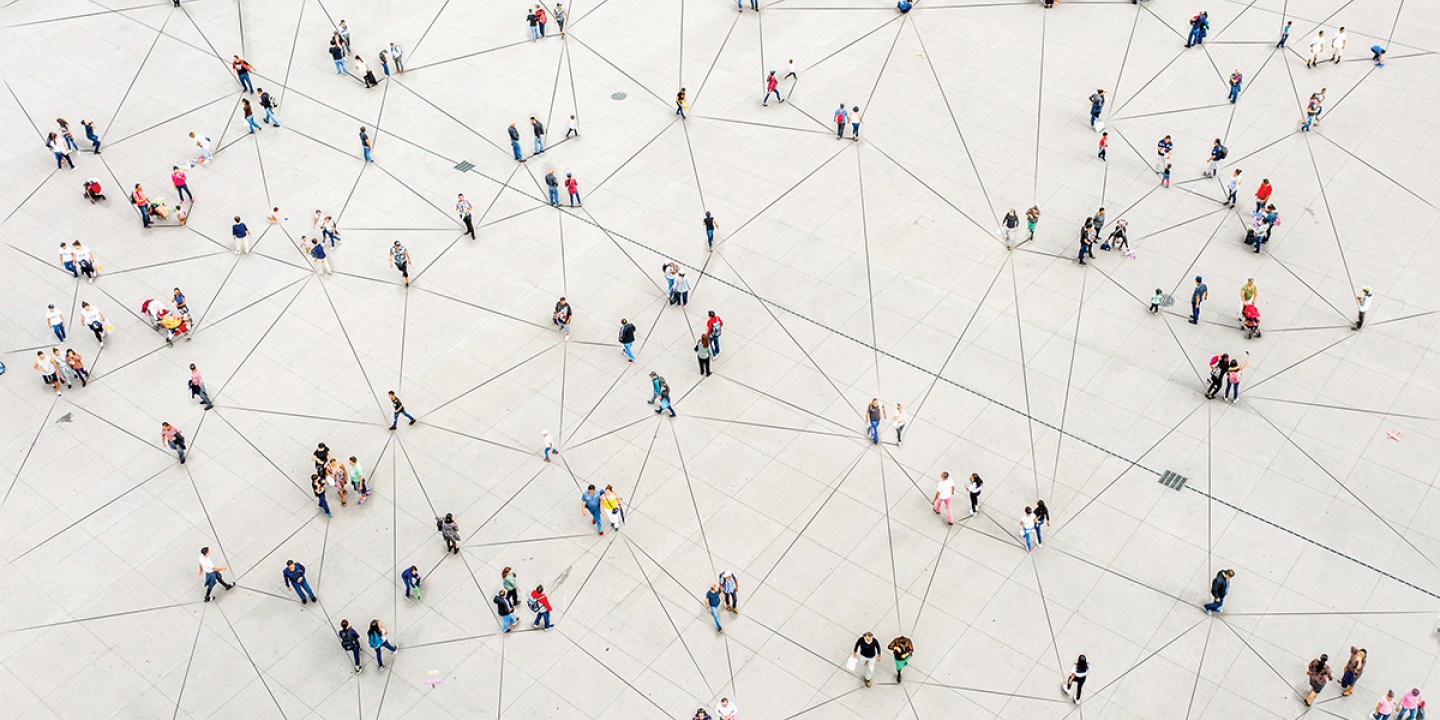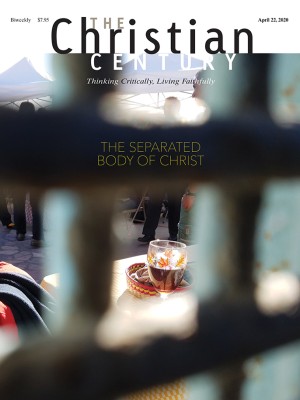The coronavirus pandemic is exposing the myth of self-reliance
The people we deem invisible are holding us together right now.

I’m writing from home, where I am blessed and forced to be, sitting in the same chair where this morning I led worship and preached over Facebook Live to a congregation that encouraged me as I became a televangelist before their eyes, taking breaks from the gospel to wave to my four-year-old and my husband as they ran in and out of the screen.
Church looks different. Family looks different. Home looks different. School looks different. I am not homeschooling, despite having downloaded about 200 lists of “fun learning activities for kids to do at home.” Mostly I am refereeing fights in between Zoom calls and trying to figure out where God is in the midst of coronavirus haze and anxiety. I can no longer take daily life for granted, even as I can’t take toilet paper for granted, even as my dear friend who’s a nurse in California can’t take having proper protection in the ICU for granted.
Read our latest issue or browse back issues.
Our capitalist system and our individualistic society have long rendered faith as cheap and acts of selfless love as obsolete or even stupid. Now we are asked to sacrifice for one another. We need Easter more than ever, and we are stuck in a Lent where sometimes it seems like no one wants to carry their cross.
We’ve mistreated valuable people and made them invisible. Home health care and hospice workers are easily discarded in America, while stock traders are cherished and protected. Our prized possessions arrive in a box on our doorstep from halfway around the world, and only now that they might be carrying a virus do we care about the low-wage worker in Asia who sewed our new sweatpants or the Amazon worker who raced to get back from his three-minute bathroom break to tape the box together on time.
A gift of this pandemic is that we can no longer make each other invisible.
I do not benefit the American economy when I go to the nursing home to visit Della, who recovered a few weeks ago from pneumonia. I don’t think it was coronavirus, but without enough tests to go around we’ll probably never know. Della, who is in her nineties, believes that prayer, along with modern medicine, saved her. She shares the wisdom of her many decades with me, and I share the hope of the church and the gospel with her. Together we bear witness to the inherent value of relationship and love, neither of which impacts the performance of the stock market.
Before we all faced social isolation, I visited Della for the last time, and she grasped my hand as we prayed. In our clasped hands I felt the buzz of the Holy Spirit, the power of human connection that cannot be quantified. I don’t know when I’ll be able to hold a nonfamily member’s hand again.
The people who care for Della, in an assisted living facility more than an hour from a major city, continue to come to work day after day. They do this to care for our treasured seniors and to feed their own families. Their wages remain minimal, though the danger and worry they face are now maximal.
Meanwhile the professional sports leagues are shut down, business conferences are canceled, and commerce has ground to a halt. Only the essential work goes on, much of it long disrespected, underfunded, and ignored.
Our faith communities have long been a primary place where we could learn these lessons—about the value of sacrifice and taking care of one another, about doing things that hurt us financially to save us emotionally and spiritually. But they exist at the behest of the invisible hand now, too. Already pastors I know are taking pay cuts, right when the world desperately needs its spiritual leaders to guide it from death into life and from grief into hope. Churches, like schools and other institutions, were already struggling financially. Our winner-take-all economic system devalues them. It does, however, give us cell phones equipped with mirrors, along with fences and walls to keep us from seeing our neighbors.
Now we’re all walled in, distant from one another—and all we want is to be together, to touch one another without fear. It took a long time for capitalism and individualism to distort the gospel of Jesus in America. Like a virus, our isolation and disaffection spread slowly at first, then faster. Perhaps it was accelerated when we started saying that people on food stamps should just get jobs, that teachers are lucky because they get summers off, that God is irrelevant or exists only for the strong.
We won’t reclaim the gospel in days or even weeks, even though people of faith are reminding us right now, in virtual worship and Zoom meetings, that love is worth much more than whatever wealth we could ever amass. We’ve long been used to drawing comfort from our isolation and our self-reliance.
I read an article about a man in his eighties, a resident in a senior living home in Seattle, who was admitted to a hospital on March 4 and tested positive for coronavirus. Speaking through a mask, the man was befuddled and frustrated.
“How the hell did I get that?” he asked.
We all are that man in this moment. We’ve bought into the American idea that we can keep ourselves safe. That self-preservation is the greatest ideal and that all of our problems exist outside ourselves—in Guatemala, in Mexico, in the “inner city,” in China, in Italy. We are untouched by the other—until we are not, until our common humanity rushes in and brushes up against us. “No man is an island,” wrote John Donne. “Any man’s death diminishes me.”
“How the hell did I get that?” How did we all get here—isolated, wondering why our neighbors are so far away, wondering why we are all so scared and so far from God? And how, in a time of pandemic, can we get back?
For one thing, we can look around and notice that the people holding us together are those we have too often erased: the health-care workers, the overnight grocery store stockers, the child-care workers and teachers, the factory workers who make toilet paper and protective masks, the oldest and wisest among us.
My nurse friend and I told each other this morning that we were both walking around on the verge of tears so often these days. We’re crying out of fear and uncertainty and anxiety and lack of sleep—but also because of all the people we see who are refusing to give in to hopelessness, despair, and isolation. They remind us of what it is to be human.
God works mysteriously. In these days of social isolation, my faith is renewed by love. By my parents dropping off gifts for the grandkids and standing in my front lawn, at least six feet away, and then going home to watch Jeopardy reruns together. By my church treasurer, who called to tell me that someone had mailed in an offering, a harbinger of faithfulness and hope that the church would continue to renew life in the midst of death.
My four-year-old kept shouting into the phone, so I told my treasurer I had to go. OK, she said. She was at the church that day. The new chair for the secretary had arrived. She was going to put it together—just as we put our community back together, one phone call, one Facebook Live worship service, one prayer at a time.
A version of this article appears in the print edition under the title “Lessons during a pandemic.”






